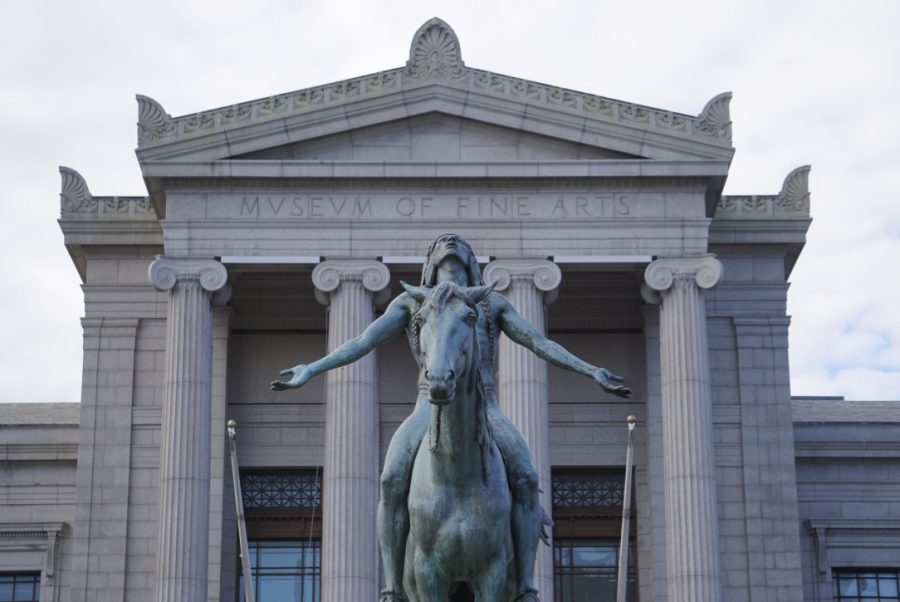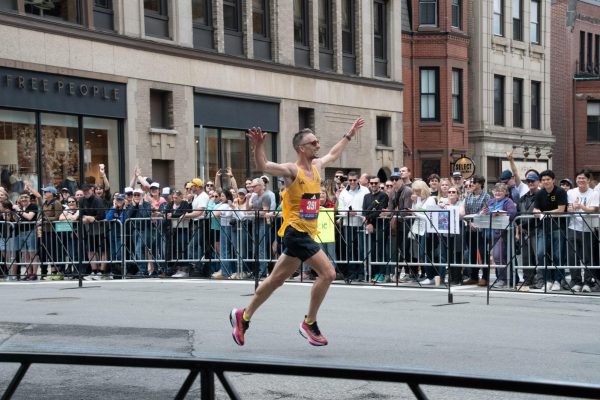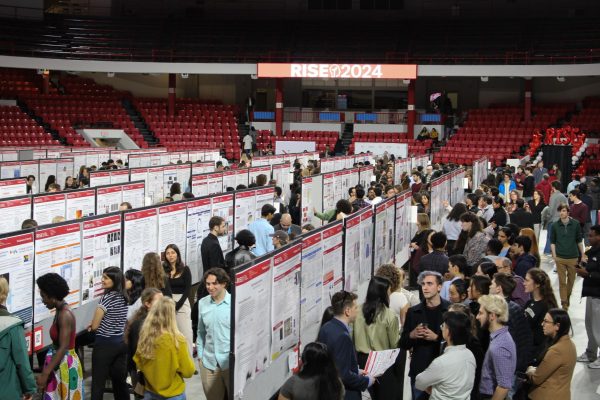MFA adapts in the spotlight of racism accusations
The Museum of Fine Arts is taking a number of steps to improve after facing accusations of racism following an incident in May.
November 20, 2019
The Museum of Fine Arts, or MFA, is making an active effort to engage with more people in the Boston community after facing scrutiny for reports of racism filed by a group of students on a middle-school field trip in May. The museum has emphasized inclusion by installing the “Ancient Nubia Now” exhibit, which celebrates black culture and history, establishing new policies and creating a “Senior Director of Inclusion” position in the museum staff.
The incident involved students from the Helen Y. Davis Leadership Academy, who said they were followed around the museum. The MFA responded with an announcement saying that during the time of the field trip, “guards went on and off break and occasionally overlapped as they moved from one area or another. Based on surveillance footage, it is understandable that, because of this movement, the students felt followed.”
The students also said an MFA employee told them museum rules included “no food, no drink and no watermelon.”
“These young people left the Museum feeling disrespected, harassed and targeted because of the color of their skin, and that is unacceptable. This is a fundamental problem that we will address as an institution, both with immediate steps and long-term commitments,” said Matthew Teitelbaum, the Ann and Graham Gund Director at the MFA, in a statement.
The announcement also states that the MFA identified patrons who made racist remarks to the students and banned them from the museum.
“I think the actual folks who were doing the name calling were members who were involved in the issue, so [the MFA has] no real control over their members and what they say and do,” said Nicole Aljoe, director of Africana Studies at Northeastern and one of the experts interviewed by the MFA for their “Ancient Nubia Now” exhibit.
In order to make amends with the community, the MFA has created numerous policies with the intent to make an active change in the way they treat their guests by engaging the Boston community.
The MFA is promoting museum engagement for students in the Boston Public Schools system by giving them free tickets to the “Ancient Nubia Now” exhibit in the hopes that the students will return and bring their family members. Aljoe also said that the museum “focused on the aspects of the exhibit that would appeal to regular members of the community as opposed to just scholars.”
“The museum is willing to do this to show that they want to engage everyone in the community,” Aljoe said. “They’ve been critiqued about how they have a lack of diversity in their board and their members. They are looking to expand their community memberships.”
Aljoe also mentioned that their exhibits are looking to target more members in Boston.
“They are putting on diverse programming so that they can get diverse audiences,” she said.
The museum created a new position called the “Senior Director of Inclusion.” The job description has not been finalized, but the director will be responsible for “supporting the Museum’s commitment to become a more inclusive organization, reach new audiences and bring the power of art into the community.”
Going around the “Ancient Nubia Now” exhibit, it is evident that the art and displays appeal to many people.
“While walking around the exhibit you get to see the beauty of Nubian culture and their artwork,” said Jack Jamroz, a frequent museum visitor.
Jamroz said the exhibit is promoting inclusiveness throughout the MFA because “it shows just how beautiful the [Nubian] heritage is.”
Aljoe also praised the exhibit for its representation of its subjects.
“They make a connection to contemporary topics. Nubia symbolizes more than this geographic, historical, and concrete space,” Aljoe said. “It speaks to blackness across the globe. This exhibit is one that celebrates black culture.”
The way the community responds to these reports of racism is a key factor in creating change.
“It is important that we support them and their efforts to change at the same time that we hold them accountable in the fact that they do have to change,” Aljoe said.


















